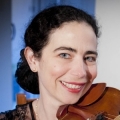You have no items in your cart. Want to get some nice things?
Go shoppingBefore the people came, I never thought of it as quiet – but then it never really was. There was always the chatter and chirrup of the birds to listen to – the breeze in the trees and the grasses, the clicking and biting of insects, and, of course, the sound of the water. It came, with a jubilant shout, pouring down the rock face and into the pool, where it swirled and rippled and frothed, before rushing away, down the river to the sea, whilst the fish gaped and basked and swam through it all.
I was happy. Time passed and the seasons changed, painting my world in new colours every day, bringing glittering sunshine, or rain, or wind. Even when the ice came – furring each leaf with crystals, stilling the water, I felt the creatures stir and mutter in their sleep, I heard the birds who were brave enough to stay. I knew the time would come when the sun would return, cracking the ice-water open again, to feed the frozen river beds and bring forth new growth – the fragile fragrance of young flowers and fresh grasses. It was always different, always beautiful and I didn’t know what it meant to be lonely.
And then the first people came – men. One summer afternoon, when the river ran strong and true, taking the blue of the sky and slicing it into rushing ribbons which curled and browned and bubbled around the mossy stones.
The men came riding up to the river – men who were thirsty and tired, rank with sweat, dirt and blood; men who fell from their horses, stripped off their clothes and staggered into the river, so that the sweat, dirt and blood streamed off them, into the water. And I didn’t mind, because I was curious to see these creatures I had never seen before and it was a wonder, to me, to see their scowls of exhaustion turn to laughter and joy. They stayed for long hours, swimming, resting, drinking again and again from the pool, until they were drunk and merry with it. When they left, they made me a present; they gathered together many of the irises that were growing in the rich loam and they tied them together with the sweet reeds and smoked them and, scattering the petals on the water, they bowed to me.
That was just the beginning.
I hoped they would come back again and they did, but this time they brought their wives and their children. They built their houses a short distance away and they came, every day, to see me. They bathed in the pool, they played in the pool, they washed and they took the water for cooking and cleaning and drinking. The women came down to the pool to wash their clothes and they gossiped and sang. Sometimes, if the men were not there, they would take off their clothes and wash themselves and I loved to see them luxuriating in the pool, ducking their heads underneath so that the water could seep to the pores of their scalps.
I loved it most of all when the children came, with their little brown bodies, so firm and pliant. I loved to see them standing at the water’s edge, daring each other to step in, pushing and shoving, shrieking with glee. When one of them climbed into the branches of the Old Tree and swung herself out to where the current ran deep, I watched with admiration. I watched as the child fought the water with courage and bravery, though she must have known that she would not win. I watched her as she gave up the battle and her little body was carried away, whilst her friends stood on the bank and screamed and wailed. Her parents came next and they screamed and wailed and then the rest of the village. They stood on the bank and ranted and cried and argued. For a while I thought that they might leave me, but they didn’t. They came instead, with strange powders and more flowers, which they threw in the water and I saw that they were afraid of me.
Until the day another child fell in the pool. This child was not so strong and he gave his body to the pool and floated, so that the ebb and flow of the water brought him back to the shore while he still had breath in his lungs, and then the whole village rejoiced. Not just the village – people came from far and wide to stare at the water, to throw flowers and to cry, sing and plead. More men came – but these ones did not bring wives or families and set up home in the village. These ones built a white marble temple that shimmered with the reflections of the pool and they lived in the temple and came and sang to me every day, burning oils and strange woods which came from a long distance away.
So now, instead of the sounds of the rain and the wind, the birds, insects and gasping fish, it was the noise of people I heard; the sounds of their industry, the voices of their own animals, their sheep and goats, the horses, pigs and chickens, the clucking and quarrelling and giggling of children, the song of women and men and the men who were there, just for me. There were fights and festivities, blood letting and baptism and this was how it remained for hundreds of years and I never grew bored. People change even quicker than the seasons and each one is as different as the pebbles that strew the bottom of the pool. Some are good and some are evil and some are full of life and some are heavy with illness or sadness or both – but they all have different thoughts and rhythms.
The village itself, grew, but it took a long time before I realised that there were not so many people coming to the pool, any more. When they did come, they came to wail and grieve and sometimes, to die, slipping into the water of their own accord, or falling in, too weak to stand on their own feet. And then the village shrank; most of the people who lived there moved away and there were no children any more. When the old men of the temple died, there were no young ones to replace them and at last there was only one old man left. When he died too, his body lay rotting in the temple, alone, the stench spreading out over the water.
Even then, however, people still came to visit from time to time. They still swam and played in the water, still bowed to me, spread petals of meadow sweet and threw sprigs of larkspur which dimpled the surface, before sweeping away, away downstream. They burned reeds and honoured me, but then they went away again and became fewer and fewer. Sometimes I would go for years without a visitor and I found that I missed the people. Now, when they came, they came in cars that belched fumes and loud noise. They brought instruments, sat on the bank and played music, they swam and mated and they lit reeds, but this time the smoke was for themselves, not for me. Still, it was nice to see them, it was good to have the company. But they talked about me, as though I was not there, as though I could not hear them.
“Sad to think that this pool will not survive the new plant they’re building upstream,” they said and I smiled to myself, because, of course, I had been here long before they came. Before such creatures as people had even been born and I did not think that they understood my power.
I had never known illness before, but it came, one day, gushing into my pool from the rocks, an acid sickness that pounded my bones and took my energy. Then the gush of water slowed to a trickle and, after that, to a drip, and then it stopped and I was left to lie, stinking and rotting, by myself. The fish, the eels and the turtles began to leave – to swim away down the river, following the hope of fresh water. The irises, the reeds, the trees and even the grass around the pool, grew brittle and dry and then gave up their spirits. The birds did not come, or if they did, they no longer fluttered and called. They came down to the pool to drink and then died too, their bodies twisted in agonies. It was the same for the animals.
I had never known loneliness before, never dreamt that loneliness like this could exist. There was nothing but stillness and quiet. I lay, in my pain and sorrow and longed for the people to come, to swim in the pool and laugh; I longed to see the children come, to giggle and wriggle in the water – but no one came.
The seasons changed – I knew, because I could feel it in the air, I saw the birds flocking away for the winter, or flying back the other way in the Spring. But the grass did not put forth new shoots, or grow its scrubby hairline around the pool. Some of the insects came, but there were no worms stirring in the mud, no fish, or turtles or eels, swimming in the water.
And then, one day, there were people again. A young family, a mother and a father walking over the grass and two children, with small, pliant, firm brown bodies that wriggled with eagerness. The children came rushing down to the water’s edge and I watched them, with a stirring of joy, a warming of hope. There they were, just the same as the children that used to come, just as full of energy and eagerness to step into the water. But their mother stopped them.
“Come away children!” she called and her face was wrinkled with disgust. “Don’t go near that water! Can’t you smell the stench? You’ll get ill if you touch it!”
These people looked, with repulsion in their eyes, at the rocks above the pool. They did not see where the grooves were scored in the stone, from the thousands of years of pouring water. They did not see the bricks of the temple under their feet, they did not hear the memories of the singing and the laughter and the joy that those bricks held, deep underneath the earth. They did not see me. They turned, instead, and walked away.
And there was silence.

About Lucy Bignall
Lucy Bignall was born in Zambia and grew up in Africa and the Middle East. She studied at the Royal College of Music in London and worked as a freelance violinist in England and then for fifteen years in Brisbane. Now back in England, she lives in a hairy cottage in a tiny village in Buckinghamshire, with her husband, three children, two cats and a dog and spends as much time as she can, writing. In the last year, she has completed two novels and written numerous short stories. She has had short stories published by the Australian Literature Review, Stringybark Publishing, Writer's Forum and Peny Shorts and has been shortlisted for the Fish Memoir prize.




